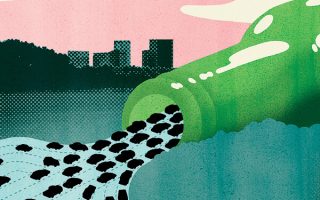Recovering from Narcissistic Abuse is a time consuming academic, spiritual, psychological, and physical process. When people ask us how long will it take to recover from the sinking feeling they typically harbor in their gut or chest after having a run-in with a toxic personality type, we tend to ask readers, “That depends… how long did it take you to get sick?”
The real answer to the question of how long will it take me to get over him, her, this, them, that, or it depends on your personality type. Personal choices in lifestyle, whether or not one elects to actually heed the advice, and the amount of time a person spends daily on Narcissistic Abuse recovery education will tend to produce different healing windows of opportunity for each person.
For those who realize that something is out of the ordinary when it comes to the complex drama in their relationship of challenge or challenges, the wake-up call time tends to be much shorter.
People who refuse to let go of childish notions and fantasies that their active Abuser is secretly a wounded bird thrashing about and pecking wildly at those trying to help it tend to take years — decades, even — learning how to set healthy psychological boundaries that functionally allow them to stop enabling abusers.
Abuse recovery is far easier to master when and if a person is willing to go full-on NO CONTACT with toxic peer groups and their Abuser(s). But that’s not always something people are functionally willing or able to do.
If a person can pull themselves up out of the quagmire of toxic thinking by their own bootstraps, they are likely to heal the fastest. What that entails is literally cutting off all social contact and withdrawing without enmeshing oneself in toxic social circles.
That means no social relationships whatsoever with people who are any of the following:
- toxic family members
- abusive personality types
- cluster B people
- covert predators
- emotionally unavailable love interests
- abusive stepkids
- adult children who are disrespectful
- parents who are toxic
- narcissistic peer groups or cliques
- people at work who are negative, ill-tempered, or who are workplace bullies
- those who pick on other people
- anyone who lies to self-promote, manipulate, or get what they want
- con artists
- people who talk behind other people’s backs
- people who gossip
- those who start rumors and fan flames of discontent
- individuals who triangulate by habit
- undermining friends
- alcoholics or problem drinkers in general
- anyone who has rage issues
- drivers who road rage, yell at, or menace other commuters by habit
- people who tell you to “get over it”
- anyone who claims it takes two to start an argument or to make a social interaction unpleasant
- people who provoke others for fun and sport
- anyone amused by caustic humor without shame, apology, or wincing
- people who gang up on others to engage in the act of mobbing
- bullies in general
- anyone racist
- anyone homophobic
- anyone who is predominantly xenophobic
- people who think stonewalling, pulling disappearing acts, or giving people they are mad at the silent treatment are the same thing as going NO CONTACT
- trauma “victims” seeking revenge
- any person or group with a vendetta agenda
- narcissistic or toxic thinkers
- hate speech promoters
- those who overlook or tolerate hate speech to such a degree they seem to willingly enable
- enablers
- people who will lie to cover for an Abuser
- anyone who tells you that physical abuse or sexual abuse was deserved or a victim’s fault
- people who blame shift
- those who avoid taking personal responsibility for their feelings, emotions, and actions
- immature thinkers who advocate repressing feelings or emotions
- people with head injuries or TBI issues that cause blurting (if you are sensitive emotionally)
The attachment to romantic interests, feeling like we (as humans) are loved and supported by family members even if and when we don’t actually like or respect them, the desire to be part of a social circle of like-minded thinkers or people with whom we have something in common… all are natural biological imperative “emotions” one must by nature learn to override by habit when and if a Cluster B predator is present.
Because Cluster B people tend to exhibit both high traits of egocentrism and pack animal behaviors, they tend to view every social interaction as a competition rather than a collaboration. They function from a constant agenda to “win” conversations.
It’s profoundly maddening, stupid, and foolish of them to treat other human beings like they are either the enemy to be destroyed or food for an angry beast to eat, metaphorically speaking. Cluster B people are the Great White Sharks of the modern world, only they have less grace and purpose.
They are land sharks. Emotional vampires who rely on social and emotional victories need to constantly manufacture chaos, hurt feelings, foster other people’s insecurities, and to truly bloody the proverbial home seas in order to feed.
People who really never relate with their own kind or anyone else for that matter are truly a different kind of human. Do they know the difference between right and wrong?
From an IQ perspective, absolutely.
But knowing the difference between right and wrong is a skill set that actually helps them wound other human beings far easier. That’s why it’s never advisable to take an Abusive or narcissistic person to counseling with you — because every time you open your soul and pour your guts out to them thinking it will make your relationship better, they will take whatever information you proffer and use it in later arguments and smear campaigns to shame, dismay, and humiliate you later with far more efficient ease.
The narcy person’s desire to win by beating another person socially or emotionally is something they have by nature. It’s also (in most toxic families) socially conditioned — or as people say in pop psychology circles “nurtured”.
By nature, a Cluster B thinker is egocentric, has tunnel vision, and perceives every social interaction as an opportunity for victory by harming or otherwise humiliating others. To them, when they attack someone, they walk away feeling refreshed, happy, successful, and above all else powerful.
For a person interested in recovering from Narcissistic Abuse expediently, it’s crucial to understand that each exposure to a toxic thinker or one of their “Abuse by Proxy” Flying Monkey Enablers results in the psychological and physical body going through the equivalent of a new battle in an ongoing war.
Hormones surge. Fight or flight engages the Adrenal system. The body tenses and alights. Fear, dread, anxiety, anger — all produce chemical cocktails in the mind and physical body that need to be processed over time.
For an abuse victim that gets mugged once, chances are PTSD symptoms will arise. But for a Narcissistic Abuse victim who has been pervasively targeted for social use and abuse by unrelenting Cluster B personality types they feel they cannot get away from in their home or personal life, the abused party is exposed to repeated trauma time after time.
[Singing the Cyndi Lauper tune here while we chat this through in the office and write.]
We know it’s not something to make light of, the whole Narcissistic Abuse cycle. But if you want to recover, one almost by necessity has to find a way to depersonalize abuse without minimizing the issue.
Time after time, a toxic thinker will take the opportunity to promote discord, to take potshots at people, and to do whatever it takes to emotionally, psychologically, or verbally abuse. If they are really nasty sorts, chances are they will strive to co-mingle physical abuse by direct harm, willful neglect, or hurt others while claiming they never meant to…
Bottom line, their claims deny accountability are crap. That goes for excuses made by abusive people and those who enable, tolerate, or overlook bad behavior, too.
If a person who decides they want to change their life stands up to bullies (rather than walking away), they can expect to be socially tortured by those same abusive former friends, estranged family, and all their toxic peers for decades. Narcissistic people never let go of grudges that are based on real or imagined hurts, noting that embarrassing them socially with even one inadvertent comment can produce in the predator a fierce desire to not simply get even with you for saying something they did not like or approve of but to physically see you dead or your reputation ground into the proverbial dirt.
On a plus note, once the firestorm of you leaving the fold dies down, only the most vindictive and truly psychologically unstable of offenders will typically keep doing things like cyberbullying, sending hate mail, physically showing up at places you are known to frequent in order to cause a victim to feel (with just cause) that they are being stalked by a person intending to menace, etcetera. Most narcy people start so many fights and have such ridiculously contentious personality types that one day they are attacking mom, the next she’s their best friend and they are after the neighbor down the street who honked at them.
All one can expect when in the company of a toxic thinker is that they are sure to say something to cause you emotional pain, to doubt yourself, or to try to enlist your help smear campaigning or shunning another. They add little to no value to the world, no matter how bright or talented by nature that they are… not because they can’t but because their egotism and hateful natures keep them using their gifts and talents to self-promote (rather than freely giving of themselves as people who strive to bring happiness or comfort to others).
The Cluster B person, whether NPD, BPD, ASPD, or HPD seldom (if ever) is pleased by another. While most understand logically that humans are dependent on one another for collective social success and achievement, to hear them talk one would never know it about them.
As tunnel-visioned thinkers, they are the person who acts like Hexus trapped by fairies into the ugliest tree in the forest in the movie “Fern Gully”. Robin Williams, a noted Narcissistic Abuse victim who most likely had serious C-PTSD, was the voice of the Character Batty Bat, a bat who had been used by humans in a lab for scientific testing.
Batty Bat, having escaped the lab, was a typical Narcissistic Abuse victim. Confused, a bit dazed, well-meaning but completely stressed out and disoriented…
Understand if one chooses to stay in direct or indirect contact with the person abusing them or any person who purposefully or unwittingly supports them is likely never to heal more than Batty Bat trapped in a science lab. In order to heal, one needs to break free and have time to physically reconnect the neurological dots. One must, in order to heal, be able to both fly free without fear of being attacked by an incoming predator and to breathe.
After going no contact, the average time for a body — not a mind, but literally a body — to reset itself internally tends to average somewhere between 18 and 24 months. That means 18-24 months of solitude if necessary, far away from the physical or social media reaches of any toxic thinker or abusive person in your family.
That means no forum fights with strangers about random topics of interest. It may mean unfollowing (if not unfriending) friends accounts that feature seriously upsetting or toxic commentary about things like politics and religion in one’s news feed.
It means avoiding engaging with any person socially or emotionally who exhibits traits of Cluster B thinkers. It means no more late-night booty calls from a hoovering ex or “friends with benefits” lover who on any given Tuesday you would be bored to tears with heading out for dinner.
What it also means is taking the time to really think through what emotional atmosphere or environment you want to create in your own home. Have you always hated those curtains or wanted blackout drapes instead of sheers in your bedroom? Change ’em. Buy new sheets and a comforter, too, while you are at it. Tend to all those DIY projects to improve your home that you have been wanting to do. And while you are at it, donate whatever does not bring your heart happiness to a FREE STUFF pile, kicked to the no-emotional-attachment curb. Give away what you can replace easily to someone who will cherish your belongings like treasure… or do a big spring cleaning in the middle of October, keeping all of it no matter who it happens to annoy that you do.
Bottom line, the more time you take each day to read new material about Narcissistic Abuse recovery from sites run by people who have expertise dealing with Cluster B issues and the more space you carve out for yourself to heal in, the faster you are likely to find out that post-abuse you might actually be a better person than you were before you “knew”.
Losing naive beliefs that all humans, at their core, come from a loving place that is defined by good is a heartbreaking but necessary trauma for some lucky few of us to do. The fan page volunteers and comment contributors over on NSFM tend to be of the Empath nature, meaning they are (for the most part) highly intelligent, gifted, and talented people with a strong natural ability to process complex human emotions like empathy (naturally).
People who survive Narcissistic Abuse and go on to escape their intellectual, emotional, or physical captors are likely to tell you unilaterally that their biggest and typically only true regret in life is NOT WALKING AWAY SOONER. If you are interested in Narcissistic Abuse recovery, get ready to hang on for the ride of your life.
The roller coaster of leaving, disengaging emotionally, learning how to go Gray Rock, of setting and defining new healthy (or healthier) boundaries, and subsequently enforcing those same boundary lines when and if an egocentric person commits a transgression is breathtaking in the gasping-for-air sense, that’s for sure. But it’s also a process, a journey of the soul; once one embraces walking the path, the point of origin stops becoming an overwhelming focus.
Rearview mirrors are essential when driving not only to see what’s creeping up behind you. They show us where we have been in life just a few hundred linear yards at a time.
Many say hindsight is 20/20, but in Narcissistic Abuse recovery it’s more like OBJECTS IN MIRROR ARE CLOSER THAN THEY APPEAR. One has to disengage from the habit of allowing abusive people and toxic thinkers to get into our headspace, but in order to do that one has to gently open the Pandora’s box of psychology.
By taking time away from predatory people, one can more safely restore the body to a state of health. As the physical body heals from living in a persistent state of fight or flight (whichever was your modus operandi when socializing with narcy people), truly the subconscious can be explored more in-depth from a position of literal physical safety.
Want to change your life? Change your mind.
Change your mind by observing, reflecting, analyzing, and purposefully acting mindfully. Recovering from Narcissistic Abuse takes time and education, a great deal of reflective self or psychoanalysis, and self-care.
Nix the toxic people in your life and anyone who acts suspiciously like a person who could prospectively be a Flying Monkey. Do it for yourself. There’s no reason to be mean, but don’t hesitate whatsoever to be assertive.
If you open your heart to a friend or extended family member asking for support and none comes, they were not your “person” to begin with; that includes blood relatives, people who you thought were your best friends, those who you trusted completely with absolutely everything, and even people with whom you have been intimate with physically or emotionally. Think of it this way — that in order to heal you need to treat yourself like you are seriously allergic to assholes and stupid people.
We hate to be so blunt, as the practice on the surface sounds derogatory… but it really works. Be the “Boy in the Bubble” like in that cheesy 80s movie.
People who are mean, irrational, insensitive, uncaring, and fundamentally self-promoting are not likely to be the kind of people you want to include in your future CIRCLE OF TRUST. Invoke your inner Robert De Niro from “Meet the Fockers” and start figuring out who is and who is not a person with whom you share mutual interests and bonds of affection.
If that means your nasty mom has to go? So be it. If your adult child steals, lies, manipulates, talks down to you, and fails to turn up as a support person when and if you (as a parent who is human) logically could use some serious help around the house or emotional support? Let them do what they want to do in life and simply stop relying on them as a source of joy, comfort, or emotional support.
Can we ever replace the Cluster B people and supporters who enable them willingly in our lives? No — but why would an abuse victim truly ever want to do something so pound foolish and illogical?
Once you are truly on the path to recovery, there will be certain days and holidays when a wellspring of emotion is likely to bubble to the surface. Once again, we reiterate recovering from Narcissistic Abuse takes time and education…
On days where you feel overwhelmed, take a few hours to watch Narcissistic Abuse recovery videos and use the internet to research articles of interest related to Cluster B personality types, how to recover from abuse, and how to cope with related C-PTSD issues. On days when you feel fine? Do something proactive to integrate tools for healing: watch a movie and armchair stereotype the protagonist and antagonist characters, watch a goofy reality television show and call out Narcissistic Abuse patterns as you see them, spend a few hours reading an abuse recovery or psychology forum and thank heaven you are in the process of distancing yourself from people likely to create emotional tension; write something creative out in a blog or journal.
Whatever you do with your free time, be sure to include daily research about Narcissistic Abuse and consistent application of psychologically healing tools. Why? Because doing things like setting healthy boundaries or learning how to spot a Narcissistic or covert abuse takes practice. It’s not a skill set you magically learn to do top-notch without practice. Surviving requires self-advocacy and personal assertiveness with regard to mental posturing.
What that means is when you are feeling blue, it’s okay to call it what it is… a tough emotional day — something that you allow yourself to feel during whatever time issues are up and you willingly let pass right through without feeling compelled to hang on to the issues. Miss your mom, even if she was a monster? Normal. Call your mom knowing she is likely to start her shit right out of the gate, doing all she can to use, lie to, manipulate, con, and abuse you? NAH — that is stuff people who have not accepted the fact that Narcissism and Sociopathy are both untreatable personality types. People who willingly victimize themselves self-indulge in the delusion that if they can just be nice enough, loving enough, kind enough — that their mother will magically change and accept them.
If you keep going back into an abusive environment because you are a People Pleasing Empath by nature (not a masochist), it’s might be time to start doing research on that. The Pandora’s box an Empath opens by researching things like intrapersonal giftedness and “HSP” (meaning the traits of Highly Sensitive Personalities) is a profoundly spiritual, life-changing experience for most. For those who are not Empaths by nature but do have the capacity to feel empathy, learning to work those intellectual and emotional muscles takes time.
The more you learn about Narcissists, narcissistic people, mind control and brainwashing tactics, things like gaslighting, undermining, and blame-shifting, the less likely you are to be victimized unwittingly. If a toxic thinker does manage to drill a proverbial hole in the bottom of your intellectual boat, the academic realization of psychological habit patterns on the part of toxic thinkers can truly work as an emotional life-saving cork.
Don’t be afraid to “be alone”. If you have access to a computer and the internet, you have friends and mentors available in oodles and tons of closed groups on Facebook and there are countless abuse recovery forums. If you feel stupid because people on the internet are more of a source of emotional comfort to you than IRL people, don’t. The most supportive social tool for recovering from Narcissistic Abuse and seeking social support for C-PTSD is actually through online connections.
Narcy people love to ridicule their preferred targets and scapegoats about their social media and internet browsing habits for this very reason. Victims of abuse who are able to escape extreme social isolation by connecting digitally with others in the same or a similar situation as theirs tend to be far more up emotionally, comfortable in their own skin, and able to withstand abuse with more dignity and self-control.
Use the research tools at your disposal to self-educate. Browse the internet. Surf for key terms and key phrases of interest related to your abuser’s unique but not in any way uncommon personality disorder. Connect on social media to abuse recovery websites. Make friends who you are likely to talk with every day online yet might not ever personally meet or see. But most importantly, if you feel the need to have face time with an actual person to discuss your situation, be sure to only reach out to a therapist or Domestic Abuse counselor who themselves has experience having been targeted for social and emotional abuse by a Cluster B.
Stop reading generic self-help articles and wishing your life was that easy. Stop comparing your situation to others in order to make yourself feel unlovable, unfit, or unworthy.
Start deciding for yourself what time you want to eat dinner, what you want to serve, and what you want to buy at the grocery. Dress for comfort and emotional contentedness — even if that means the outfit you chose to wear today is hot pink, purple, or sideways stripey.
If you want to make your bed in the morning? Do. If you could care less about it and would rather spend an extra ten or fifteen minutes lathering up in the shower instead of making the damn thing look perfect, go for it. Or conversely, enjoy every single minute of doing household chores like tidying up and improving your home environment.
Bottom line, if you have spent the better part of your life living under the thumbs of oppressive personality types, the person you might need to educate yourself about the most is YOU.
Take all the time you need to heal from Narcissistic Abuse and get to know yourself as a self-sufficient, kind, loving, and entitled human being. That does not mean give yourself permission to run roughshod over other people, but it does mean taking personal responsibility for figuring out your own lifestyle habits that you purposefully and mindfully want to create while spending time allowing your body to heal after suffering psychic and physical stress-produced injuries.





